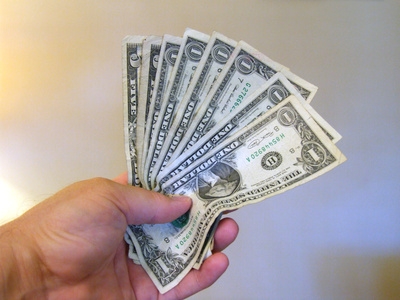
Car dealerships aim to make money, like any business. A dealer's large profit margins often rely on inexperienced car buyers who mistakenly believe they must pay for the price advertised of the car. The sticker price on a car essentially has a hidden "Negotiable" sign underneath. By comparing prices from different dealerships, threatening to walk out and avoiding needless fees, you can often purchase a car for a price far less than what dealers would like you to pay.
Call three to five dealerships and ask them the kind of price they can give you for your desired car. The price the dealership gives you is just a rough price, but you can use that as a starting point and right away scratch some dealers off your list. If four of the dealers tell you $16,000 for the car, and another dealer tells you $17,500, then pay no attention to the more expensive dealer.
Shop with even-keeled emotions. Sounding too excited about a car gives the car salesman the upper hand, because he knows that you really want the car, and you're likely to jump at any price.
Start out low, and then work your way up. Buying a $20,000 car for $16,000 may not be possible, but $16,000 is a starting point. Salesmen will always try to work your ideal price closer to the sticker price, so start out low and go from there.
Walk out if the salesman tells you the sticker price is the lowest price. The price dealers pay for cars is called the invoice price. The sticker price is usually a 10 to 20 percent markup from the invoice price, according to Bankrate.com. Dealers can and will go lower than the advertised price. Walking out is an effective strategy if you can't agree to a deal, because it causes salesman to reason with you and attempt to meet your price; dealerships don't want to lose customers to another dealership.
Pay only the required fees. Taxes, title and registration fees are always required, and destination charges are required if you ordered the car from the manufacturer. You should not have to pay any other fees the dealer tells you to pay, such as promotion and floor fees. Avoid paying for optional services as well, such as paint sealant or rust proofing.
Obtain pre-approval on a loan before you arrive to meet the salesperson. A dealership takes a cut on all financing deals they land, according to Edmunds.com. Therefore, the larger the loan, the more money the dealer pockets. If you obtain financing before you arrive at the dealership, the dealer has less incentive to not budge when it comes to the total price.
Shop for the total price before you finance. If you cannot obtain a loan at your bank, then you'll probably have to get financing through the dealer, but don't do so until you agree on the price of the car. Negotiating a lower monthly payment doesn't necessarily mean you're getting the car cheaper, it could mean a lower interest rate or a longer term.